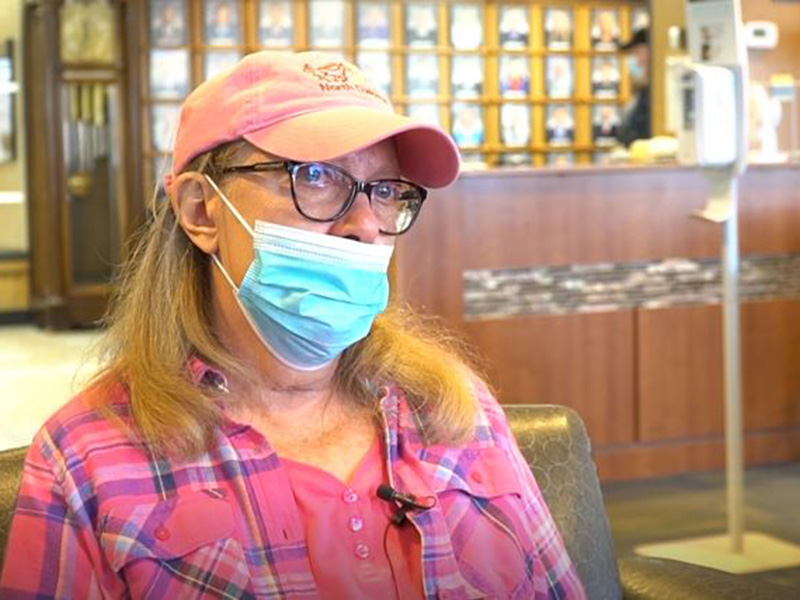Two years ago, 69-year-old Patricia Meier was diagnosed with colon cancer after doctors discovered a tumor on the right side of her colon during her colonoscopy.
Thirty days later, she underwent robotic-assisted surgery to remove the cancer, a choice she says changed her life.
The robot, known as the Da Vinci XI Surgical System, assists the surgeon by creating six small incisions approximately half an inch or less in the abdomen area.
Is robotic surgery an option? Robotic surgical services at Sanford Health
In the hands of a surgeon, the robot makes precise and minimally invasive cuts that greatly reduce patient recovery time and pain.
“I definitely think that people don’t know a lot about it, or they may even think the robot does it, which of course isn’t the case at all,” said Meier. “I was really excited about it because I didn’t want a big incision. I went home the day after surgery.”
Why are robots used in colorectal surgery?
Douglas Berglund, M.D., and Michael Huck, M.D., are the only board-certified colorectal surgeons in central and western North Dakota who perform robotic colorectal surgery.
Dr. Huck says robotic-assisted surgery has become the preferred method of colorectal surgeries.
“Compared to surgery 10 to 15 years ago when it would have been traditionally open with one large incision, these are just a few small incisions. Even compared to laparoscopically, the recovery time is generally quite a bit faster. Patients seem to have less pain and are up and moving faster in the hospital and at home,” said Dr. Huck. “It just gives us a lot more range in motion and ability to work inside the abdomen.”
Find a colorectal specialist: Sanford Health colon doctors and surgeons
Dr. Berglund has made it his life’s career to evaluate and treat diseases of the colon, rectum and anus. After working with Sanford Health for 27 years, he says the robot has made great improvements to his practice.
“It’s interesting — as a surgeon, I’ve seen a lot of cases through the years. I think that it’s made me a better surgeon just because you see so well,” said Dr. Berglund. “Your eye is basically right on the tissue that you’re working on and that way you can be much more precise.”
How long does it take to recover from robotic colon surgery?
Meier’s procedure removed one-third of her colon, her appendix and 24 lymph nodes, but she was up and out of the hospital the next day.
“It’s very scary, but the whole thing, the surgery, the recovery … it hasn’t been bad at all,” said Meier. “I’m healthy and I don’t have to go back except in a year for another colonoscopy, which I will do.”
Starting at age 45, get screened
A preventive screening is the best way to find an issue before it becomes colorectal cancer, the second leading cause of cancer-related deaths in the United States and the third most common cancer in men and women. However, when caught early, colorectal cancer is 90% treatable.
Regular screening, beginning at age 45, is crucial in catching precancerous polyps and colorectal cancer early, when it’s easiest to treat. Risk increases as you get older. Talk to your doctor about the screening test right for you.
Learn more
- Colonoscopy becomes lifesaver for baseball player, publisher
- Colorectal cancer screening: Check out the options
- Mom and daughter learn colonoscopy is key to stopping cancer
…
Posted In Bismarck, Cancer, Cancer Screenings, Cancer Treatments, Digestive Health, General Surgery

